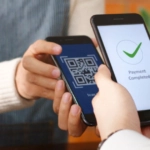HomeResourcesManaging risks and compliance in online marketplacesGlobal Business Strategy
Your guide to global sanctions lists
Criminals are taking advantage of easier cross-border payments. Screening them can be a hindrance amid high transaction volumes. To address this problem, there are global sanctions lists. Let us help you secure your platform against these criminals. Find out everything you need to know and more in this guide.

In a nutshell: When processing high numbers of payees and large transaction volumes, screening through (mandatory) sanctions lists can prove to be an obstacle to global growth. Tackling them solo is a challenge – but Payoneer can help facilitate a seamless KYC process. By easily identifying sanctioned entities upon transaction, Payoneer can help secure the safety of your platform.
Today, sending money cross-border is easier than ever. However, there is no shortage of fraudulent groups and individuals engaged in illegal activity looking to take advantage of those very platforms that break down global borders and facilitate trade. To fight this phenomenon on a global scale, sanctions lists were put in place.
What are sanctions lists?
Sanctions lists were put in place by governments and international authorities (think: UN) to combat criminal financial activity. They help businesses identify countries, individuals, or entities involved in financial crime and work to restrict or prohibit trade with said foreign targets suspected of engaging in illegal activities across the globe.
So, who can I expect to find on these lists?
It is impossible to save the world from all wrongdoing. There will always be someone who manages to sneak under the radar or outsmart the most sophisticated legal authorities. But those that don’t (which, let’s hope, is the majority) find themselves blacklisted via sanctions lists. Sanctions lists include individuals, organizations, or entire nations involved in the criminal financing of the following sort of activities:
- Terrorism
- Illegal drug trafficking
- Nuclear weapon proliferation
- Human rights violations
- International treaty violation
- Human trafficking
- Money laundering
Who must comply with these lists?
Compliance with global sanctions lists is mandatory. Any business wishing to engage in cross-border activities must ensure compliance with the sanctions limitations of the countries in which it operates. Failure to comply may be viewed as a threat to national security or foreign relations. Accordingly, non-compliance results in serious penalties and repercussions – whether financial (fines of up to $20M), or criminal (prison sentences of up to 30 years). When expanding globally, internal inspection of all stakeholders is key to ensuring alignment with the limitations of the market to which you are expanding. This is no easy task – especially when processing high-volumes of transactions from hundreds of thousands, or millions of users.
Got it. So how can Payoneer help?
As a tightly regulated global financial entity, Payoneer operates under a robust compliance program that, at its core, is supported by a highly-trained international risk operations team. Accordingly, our solution is built on the anti-money laundering and counter terrorism funding policies and procedures laid out by the EU, UN, and US. Every payout transacted through Payoneer is processed and reviewed thoroughly by our Entity Screener – a robust internal screening tool that aligns with the lists of OFAC, SDN, HMT, RES 1988, AQ and CFSP and more. Choosing to work with Payoneer ensures compliance with global regulation and with country-specific sanctions lists.
Which lists are relevant for my company?
The lists with which you comply will vary based on the countries in which you operate and transact with. Governments across the globe maintain targeted lists specific to their country. These lists are often public knowledge, accessible via the internet to all businesses engaging in KYC (know-your-customer) processes. Here are some key sanctions lists to keep in mind:
- OFAC: Relevant to the United States, this list is issued by the Treasury Department’s Office of Foreign Asset Control (OFAC).
- HMT: HM Treasury (HMT) is the British sanction-issuing entity issuing sanctions. The HMT imposes arms embargoes, import, export, and travel bans, and financial sanctions on entities or individuals that appear on this list.
- CFSP: The Common Foreign and Security Policy (CFSP) is the European Union’s consolidated list of sanctioned entities and individuals.
- ASF: The Ministry of Finance of Japan (MOFJ) oversees and regulates the ASF.
- UN Lists: The United Nation’s Security Council has issued several sanction lists in response to security threats. Resolution 1267, for example, covers individuals and entities associated with Al-Qaeda. 1718 imposes sanctions on the Democratic People’s Republic of Korea (North Korea), and 1988 on the Taliban.
- Australian List: The Australian Government imposes sanctions on this list of entities.
Can I tackle this sort of compliance challenge solo?
Sanctions compliance requires substantial resources and failure to comply comes with high costs.
The lists mentioned above are only a tiny sample of the many, many sanctions lists imposed worldwide. Aside from being mandatory, these restrictions secure a smoother and more fair flow of funds. With 195 countries out there, keeping track of global sanctions is a nearly impossible task. It involves processing massive amounts of data – on individuals, their aliases, geographic locations, and networks. Doing so on a case-by-case basis is an impossibility for any global business processing significant transaction volumes daily.
Taking on internal screening is possible but requires heavy allocation of time and resources to the development of an appropriate screening tool or mechanism.The stakes for non-compliance are high – with hefty financial and criminal consequences in place. Keep that in mind when approaching the crossroads of entering a new market. And remember that with Payoneer, you have a full partner in ensuring compliance. Payoneer’s automatic screening mechanism can be easily integrated with your online platform or marketplace to ensure full sanctions list compliance when processing global payments.
Related resources
Latest articles
-
Kazakhstan payment landscape: The best ways to send and receive money internationally
The right payment solution for your business saves both time and money. In this infographic, we explore the major players in Kazakhstan’s payment ecosystem for international transfers.
-
Defying the odds: How Ukrainian businesses thrive during war
One year post-war, Ukraine’s businesses adapt and thrive amidst adversity. Entrepreneurs showcase resilience, reflecting national tenacity. Many diversify, venturing into e-commerce and digital realms. Despite hurdles, 44% of SMBs aim for growth, with 36% hiring. Their grit underscores Ukraine’s enduring spirit amid challenges.
-
How to Pay International Freelancers?
Interested in working with freelancers, worldwide? Making international payments to freelancers and independent contractors around the world doesn’t have to be a headache with Payoneer. Learn how to use Payoneer to pay overseas freelancers while saving on international transaction fees and without jumping through hoops.
-
What Are The Best Payment Options For Freelancers?
Freelancers offer flexibility and expertise without the overhead of traditional employees. However, processing invoices and payments for international freelancers can be a complex and time-consuming process. To work with freelancers effectively, it’s crucial to understand the available payment options for freelancers and how to best keep on top of accounting and invoicing.
-
An 8-point Checklist for Finding the Best Payment Provider
There’s huge potential to expand into ASEAN markets. But only for online sellers that accept local payment methods. Finding a trusted payment solution can be a worry and a challenge. Use this checklist to vet potential payment partners. With the right payment support, the sky’s the limit!
-
How to bill your international clients
Want to learn how to bill international clients when you’re based in the Philippines? In this article we spoke to three leading business owners who shared their tips to working successful international work. Learn how they collect payments and more below.














